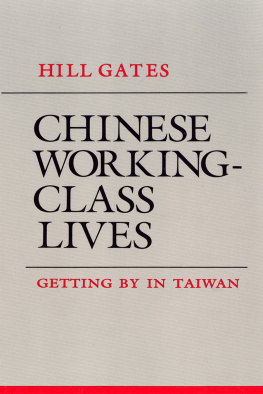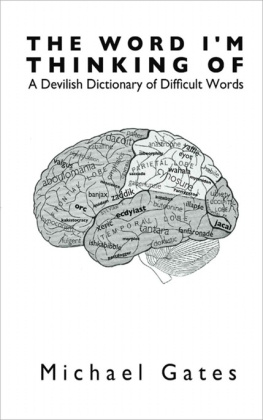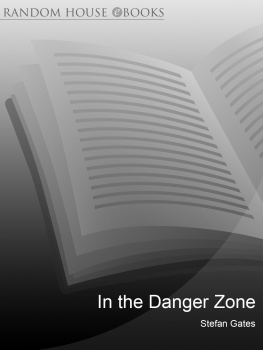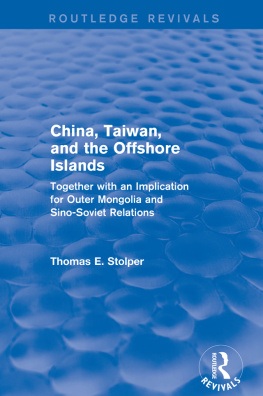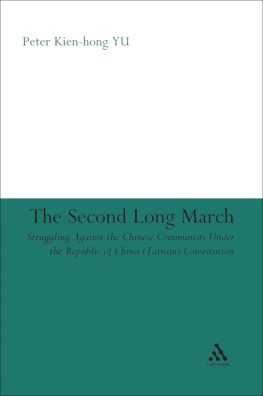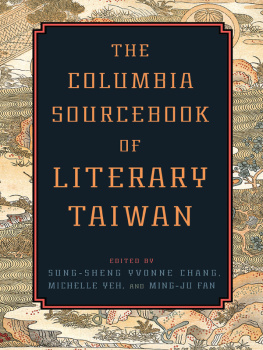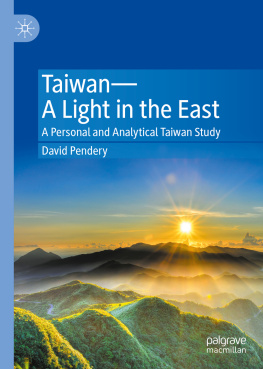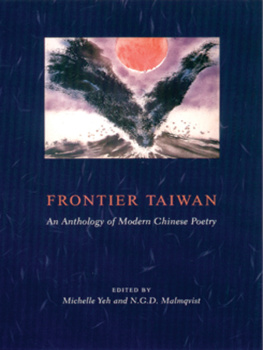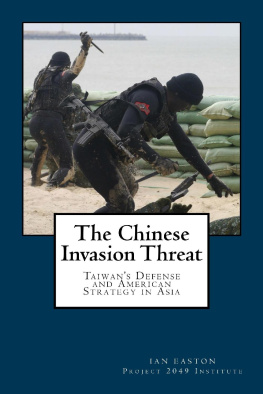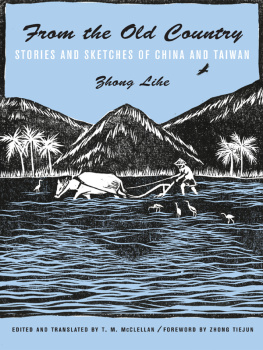Gates - Chinese working-class lives: getting by in Taiwan
Here you can read online Gates - Chinese working-class lives: getting by in Taiwan full text of the book (entire story) in english for free. Download pdf and epub, get meaning, cover and reviews about this ebook. City: Ithaca, year: 1996;2017, publisher: Cornell University Press, genre: Politics. Description of the work, (preface) as well as reviews are available. Best literature library LitArk.com created for fans of good reading and offers a wide selection of genres:
Romance novel
Science fiction
Adventure
Detective
Science
History
Home and family
Prose
Art
Politics
Computer
Non-fiction
Religion
Business
Children
Humor
Choose a favorite category and find really read worthwhile books. Enjoy immersion in the world of imagination, feel the emotions of the characters or learn something new for yourself, make an fascinating discovery.
Chinese working-class lives: getting by in Taiwan: summary, description and annotation
We offer to read an annotation, description, summary or preface (depends on what the author of the book "Chinese working-class lives: getting by in Taiwan" wrote himself). If you haven't found the necessary information about the book — write in the comments, we will try to find it.
Chinese working-class lives: getting by in Taiwan — read online for free the complete book (whole text) full work
Below is the text of the book, divided by pages. System saving the place of the last page read, allows you to conveniently read the book "Chinese working-class lives: getting by in Taiwan" online for free, without having to search again every time where you left off. Put a bookmark, and you can go to the page where you finished reading at any time.
Font size:
Interval:
Bookmark:
The written sources from which we can learn about Taiwans culture were produced in specific historical contexts and in response to the varying intellectual, political, and economic pressures that made events on this small island worthy of recording. Because of its strategic significance to sixteenth-century Fujianese merchants, Dutch mercantilists, Japanese imperialists, and Nationalist irredentists, Taiwan has had an importance far greater than its size and peripherality to the Chinese world would suggest. As a result of these historical accidents and of the way in which knowledge is produced in societies such as our own, the social-science literature on Taiwan is now probably higher in quality and quantity than that for any other part of China. We are easily tempted, therefore, to use Taiwan as a microcosm of the harder-to-study China of the past and present, while at the same time the unusual circumstances that prompted so much scholarship argue for the special nature of the Taiwan case. We know far less about Chinas cultural variations and unities than we must if we are to give Taiwan its proper place in Chinese and in comparative studies.
Far removed by distance and politics from the dynamics of nineteenth-and twentieth-century change on the mainland, the island has especially interested Japanese and Americans. Since the Japanese conquest in 1895, therefore, support has been available, and permission readily obtained, for Japanese researchers (before the Pacific War) and American ones (after it) to study its social relations and cultural patterns. Since about 1970, as economic success and continued political autonomy prompted concern for and pride in Taiwan itself, the Nationalist authorities, too, have supported Chinese researchers in growing numbers. Scholars from countries without special political and economic interests in the island have been few
The anthropological literature, created largely by American scholars after 1960, although generally of a high standard, contains a marked bias toward seeing Taiwan as a sample of an essentially homogeneous Chinese whole. Although much of this literature describes the ethnographic present accurately, its data and conclusions have frequently been held to stand for an ethnographic past as well. Those who have studied Taiwans farmers and urban poor have sometimes assumed that they were uncovering Chinese traditions that would reveal the past, both in Taiwan itself and in the wider Chinese world. My study of Taiwans working class often does precisely this, as when I assume, in Chapter 3, that contemporary views of gods, ghosts, and ancestors reflect nineteenth-century (or earlier) popular perceptions of significant social categories.
Although there clearly are continuities between Taiwans present and Chinas past, precisely what is continuous, especially in the slippery and shifting realm of meaning, is always open to question. We must demonstrate these continuities, not assume them, for recent researches into the Chinese past increasingly undermine the sometimes unarticulated assumption of an unchanging Chinese past in favor of a search for the processes and particularities of its evolution (P. Cohen 1984). Over time, important pressures have reshaped and adapted Chinese ideologies and practices of kinship, class, economy, and power. Primary among these pressures are the competition of ethnically non-Han regional substrates with Han culture; the differential impact of Chinas indigenous commercialization in, for example, the southeast coast versus the northwest interior; the unequal penetration into regions and social strata of European imperialist capitalism since the mid-nineteenth century; and the political and economic divergence of Taiwan from China for nearly one hundred years. When we consider these potent sources of cultural variation, it becomes easier to guard against assuming the universality of a pan-Chinese cultural coherence. Although Chinese states consciously foster a belief in such coherence and the relative ignorance of Westerners unconsciously supports that belief, the unity or variability of Chinese culture remains an open question both for empirical examination and for political interpretation.
The unity of Taiwan society with Chinas, as well as its essential Chineseness, has by no means been a politically neutral issue to many who have an interest in the society: to the Qing authorities, beset with foreign imperialist attacks on its outlying province; to the Japanese, who wished to Japanize the Taiwanese while at the same time feeling superior to them; to the Nationalists, struggling to maintain their legitimacy at home and abroad; to the government of the P.R. C., which, like Qing rulers, is uneasy with foreign influences so near its shores; and to American military and industrial interests, eager for allies and exploitable labor in the Pacific. As assumptions about Chinese unity frequently underlie the anthropology carried out on Taiwan, the written sources on which that anthropology draws should be read with particular attention to the social contexts and viewpoints of their writers.
The reader of this volume who wishes to pursue Taiwan studies further will receive some guidance in locating important sources of information from the list of citations on the following pages. It may also be useful to know something about other sources that, although not cited directly in this study, have formed opinion about Taiwan. This brief addendum, then, is meant to expand and give intellectual context to that list. I will briefly consider sources deriving from Western writers about pre-twentieth-century Taiwan, certain Chinese historical and popular culture genres, and Japanese scholarly and administrative writings about its colony before turning to the main body of English- and Chinese-language analyses and interpretations that have appeared since the late 1950s. This book is based primarily on these works, along with my own field notes. The emphasis in the following is on English-language materials as much as possible, for I assume that specialists will already know their way into this scholarly thicket, even if they have not yet found their way out.
Among the Western-language sources on Taiwan as it was prior to the nineteenth century, William Campbells Formosa under the Dutch (1972 [1903]) is especially useful in summing up the Dutch experience and Aboriginal cultures of that time. Campbell draws on contemporary Dutch and Chinese accounts, as well as on later scholarship. In the nineteenth century, relatively few of the Westerners, mostly merchants, who traveled to Taiwan published descriptions of Chinese life there. An important exception, and still a folk hero in Taiwan to some, was George Mackay, a Canadian Presbyterian medical missionary. Mackays From Far Formosa (1895) contains more than the usual missionary quotient of observations from his professional travels. A second important late-nineteenth-century source is James W. Davidsons The Island of Formosa (1967 [1903]), a valuable study of the early Japanese period and its economy. Though utterly unimpressed with the Chinese elite of the time and transparently biased in favor of the Japanese government that made use of his talents as a journalist, Davidson shows much sympathy for the life, work, and character of ordinary Chinese.
These descriptions of Taiwan life may be cautiously supplemented with those from the pens of the many Westerners living in southern China, especially Fujian, during the nineteenth and first half of the twentieth centuries. The extensive studies of Chinese popular religion by Justus Doolittle (1966 [1865]) and J. J. M. de Groot (1969 [1882]) are especially valuable, since they are based in large part on the regional culture from which Taiwans derives, and with which it was complexly connected at the time.
Early Western observers often distinguished sharply among the social classes and paid particular attention to regional differences and local peculiarities in order to proselytize or make use of local resources. But they also often assumed a fundamental cultural unity, using elite Chinese culture as the standard for the entire society.
Font size:
Interval:
Bookmark:
Similar books «Chinese working-class lives: getting by in Taiwan»
Look at similar books to Chinese working-class lives: getting by in Taiwan. We have selected literature similar in name and meaning in the hope of providing readers with more options to find new, interesting, not yet read works.
Discussion, reviews of the book Chinese working-class lives: getting by in Taiwan and just readers' own opinions. Leave your comments, write what you think about the work, its meaning or the main characters. Specify what exactly you liked and what you didn't like, and why you think so.

